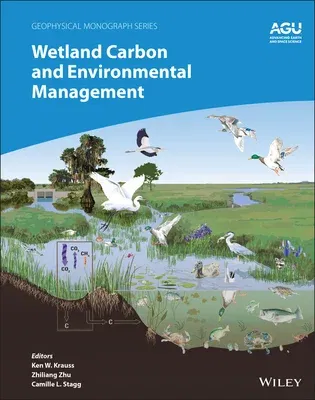Explores how the management of wetlands can influence carbon storage
and fluxes.
Wetlands are vital natural assets, including their ability to take-up
atmospheric carbon and restrict subsequent carbon loss to facilitate
long-term storage. They can be deliberately managed to provide a natural
solution to mitigate climate change, as well as to help offset direct
losses of wetlands from various land-use changes and natural drivers.
Wetland Carbon and Environmental Management presents a collection of
wetland research studies from around the world to demonstrate how
environmental management can improve carbon sequestration while
enhancing wetland health and function.
Volume highlights include:
- Overview of carbon storage in the landscape
- Introduction to wetland management practices
- Comparisons of natural, managed, and converted wetlands
- Impact of wetland management on carbon storage or loss
- Techniques for scientific assessment of wetland carbon processes
- Case studies covering tropical, coastal, inland, and northern wetlands
- Primer for carbon offset trading programs and how wetlands might
contribute
The American Geophysical Union promotes discovery in Earth and space
science for the benefit of humanity. Its publications disseminate
scientific knowledge and provide resources for researchers, students,
and professionals.

